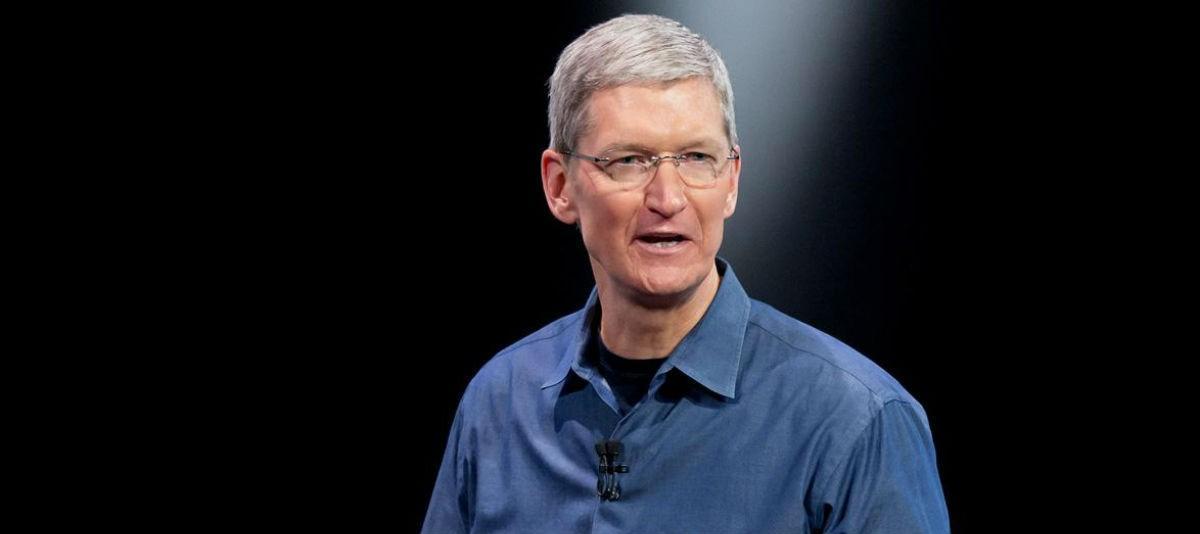Apple has cut its sales forecasts for the first time since 2002, blaming a sharper than expected economic slowdown in China. Shares in the company fell by 8pc after it revealed that iPhone sales were well below expectations in the final months of 2018.
Tim Cook, Apple’s chief executive, said the company would report revenues of around $84bn (£67bn) for the three months to the end of December, usually a blockbuster trading period that follows the release of new iPhone’s.
This was down from its own forecast of around $91bn, made just two months ago. It means that Apple is now shrinking, with the company set to register its first sales decline in two years when it reports results for the quarter in a few weeks’ time.
In a letter to investors, Cook said that slower economic growth in China was largely responsible for the shortfall, pointing to an escalating trade war with the US.
“While we anticipated some challenges in key emerging markets, we did not foresee the magnitude of the economic deceleration, particularly in Greater China. In fact, most of our revenue shortfall to our guidance, and over 100 percent of our year-over-year worldwide revenue decline, occurred in Greater China across iPhone, Mac and iPad.” he said.
However, he admitted that sales in more mature economies had also been disappointing. Price rises in some countries have put off consumers, and iPhone owners have refused to upgrade, partly because of Apple cutting the price of replacement batteries that have extended the life of their older phones.
“Lower than anticipated iPhone revenue, primarily in Greater China, accounts for all of our revenue shortfall to our guidance and for much more than our entire year-over-year revenue decline. In fact, categories outside of iPhone (Services, Mac, iPad, Wearables/Home/Accessories) combined to grow almost 19 percent year-over-year.
While Greater China and other emerging markets accounted for the vast majority of the year-over-year iPhone revenue decline, in some developed markets, iPhone upgrades also were not as strong as we thought they would be. While macroeconomic challenges in some markets were a key contributor to this trend, we believe there are other factors broadly impacting our iPhone performance, including consumers adapting to a world with fewer carrier subsidies, US dollar strength-related price increases, and some customers taking advantage of significantly reduced pricing for iPhone battery replacements.”
The share price drop means that Apple has now lost more than a third of its value since its peak in October.
Less than six months ago, Apple became the world’s first public company to be worth more than one trillion dollars, but it has since lost that status, as well as its position as the world’s most valuable company, amid growing fears about iPhone sales.
Microsoft and Amazon have surpassed Apple in value in recent weeks, and the latest drop means it is now set to fall below Alphabet, Google’s parent company.
Mr Cook attempted to soften the blow by pointing to stronger growth in other areas. Its services division, which includes sales of apps and music, grew revenues to $10.8bn, up more than 25pc on a year ago, while sales of wearables such as the Apple Watch and AirPods headphones rose more than 50pc.
However, the company continues to rely on the iPhone for the majority of its revenue. Mr Cook said Apple was looking to new initiatives, such as encouraging iPhone owners to trade in their older handsets, to rejuvenate sales.
Tech Fallout
The unscheduled update was a rarity for the company and sent shares in other major tech companies including Amazon and Microsoft falling. The update threatens to spark a wider market drop among tech shares on Thursday. The Invesco QQQ Trust, which tracks the tech-heavy Nasdaq index, fell by 2pc in late trading.
It also apparently roiled the currency markets. Japan’s yen rose as much as 3.7 percent to 104.87 in early Asian trading on Thursday, the highest level since March 26.
The Australian dollar, often seen as a proxy for China and emerging-markets, plunged as much as 3.5 percent to 0.6741, lowest since March 2009.



